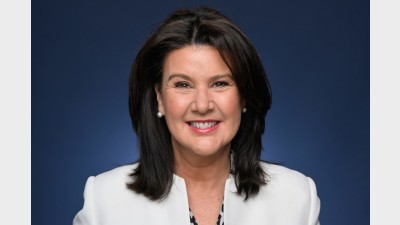Industry body proposes $2k government payment towards retirement planning


The Financial Advice Association Australia (FAAA) has recommended a $2,000 means-tested payment over the next decade to pre-retirees to help pay for financial advice ahead of retirement.
In response to the government’s consultation on the retirement phase of superannuation, the association has thrown its support behind government action that would enable positive outcomes for more Australians entering and throughout retirement.
It said that it recognises the growing importance of retirement income policy, and the government’s commitment to address obstacles to retirees making optimal decisions about investing and spending their superannuation in retirement.
“We believe that improved financial knowledge combined with financial advice is critical to achieve this,” said FAAA chief executive Sarah Abood in the submission.
“Financial knowledge and advice will have a greater impact in achieving positive consumer outcomes than new reporting regimes or product changes. Financial advice is at the core of assisting Australians to make good financial decisions.”
However, given that lifting the level of financial knowledge in the Australian population is a long-term process, it suggested a limited special payment to help pre-retirees access financial advice.
“We recommend as an interim measure, perhaps for a decade, an offer to Australians of a special payment to allow them to seek financial advice,” the FAAA said.
“This could be something in the order of $2,000, potentially subject to means testing, and only available to those beyond a threshold age (possibly 55 or 58).”
Moreover, improved information and tools for those approaching retirement is vital to better outcomes, the FAAA said.
“We imagine that this could be helped by the development of a retirement specific government website (i.e. retirement.gov.au). We would recommend that this education be provided through bite-sized elements that can more easily be digested, and then built upon,” it said.
“We also favour the use of scenarios and real-life examples to show how important issues have been considered and addressed. The delivery of this education should be through multiple means to support the different learning preferences of middle to older aged Australians.”
The association said the current focus on improving pension products and retirement income uptake would require a degree of financial knowledge and confidence that could be achieved through increased access to financial information and advice.
Good longevity risk products already exist, however the demand for them is very limited, the FAAA pointed out.
“Historically, they have more often than not been products that were available outside the superannuation system. That has changed in recent years as some super funds have built product solutions internally, while others have made them available through their platforms,” the submission stated.
“Some superannuation funds do not have capacity to provide the capital that might be needed to back some of these products, however all have access to the option of engaging with alternative providers such as life insurers to build solutions for members on the funds’ behalf.”
It said that it supported a “careful review” of the minimum drawdown rates for account-based pensions, citing feedback from members that the rates for older Australians (i.e. 11 per cent for 90 to 94, and 14 per cent for those 95 and over) are “excessive” and often go well beyond what is necessary.
The submission also made it clear that while the FAAA is in support of “nudges”, it is firmly against default actions.
“The government has suggested that their intent, as part of their response to the Quality of Advice Review, is to better enable ‘nudges’ to encourage people to take action. We support this approach, provided that it is done in a way that is balanced and encourages people to consider independent personal advice relevant to their situation, financial objectives and aims,” the FAAA said.
“We note that ‘nudges’ that encourage a member to consider options that may benefit them are very different to ‘defaults’ that take action on behalf of a member who has not made an active decision. We do not support defaults in retirement planning, as there is a high risk of permanent loss that cannot be recouped.”
Additionally, the FAAA said that it does not support “government intervention into the financial product space where this is likely to come at a significant cost to taxpayers and without any guarantee of voluntary take up by consumers”.
Recommended for you
While the Financial Advice Association Australia said it supports a performance testing regime “in principle”, it holds reservations about expanding this scope to retirement products.
In a Senate submission, the Financial Services Council said super funds should be able to nudge members on engaging with their super and has cautioned against default placements.
The Joint Associations Working Group, which counts FSC in its ranks, has issued an urgent warning to the government.
Senator Jane Hume will join the speaker lineup at the inaugural Australian Wealth Management Summit.












Add new comment